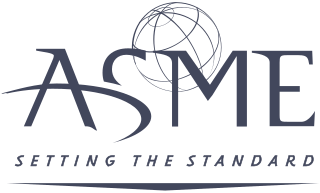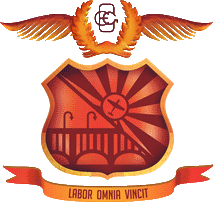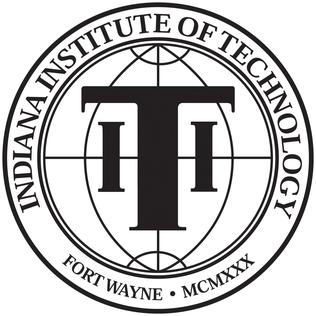Related Research Articles

The Canadian Federation of Engineering Students (CFES) (Fédération canadienne étudiante de génie in French) is the national association of undergraduate engineering student societies in Canada and exists to organize activities, provide services and interact with professional and other bodies at the national and international level for the benefit of Canadian engineering students. The organization is a bilingual non-profit corporation based in Ottawa, Ontario, Canada, managed by a volunteer team of engineering students and recent graduates from across Canada.
ABET, also known as The Accreditation Board for Engineering and Technology, Inc., is a non-governmental accreditation organization for post-secondary programs in engineering, engineering technology, computing, and applied and natural sciences.
Engineering management is the application of engineering methods, tools, and techniques to business management systems. Engineering management is a career that brings together the technological problem-solving ability of engineering and the organizational, administrative, legal and planning abilities of management in order to oversee the operational performance of complex engineering-driven enterprises.

The American Society of Mechanical Engineers (ASME) is an American professional association that, in its own words, "promotes the art, science, and practice of multidisciplinary engineering and allied sciences around the globe" via "continuing education, training and professional development, codes and standards, research, conferences and publications, government relations, and other forms of outreach." ASME is thus an engineering society, a standards organization, a research and development organization, an advocacy organization, a provider of training and education, and a nonprofit organization. Founded as an engineering society focused on mechanical engineering in North America, ASME is today multidisciplinary and global.

The American Society of Agricultural and Biological Engineers (ASABE) is an international professional society devoted to agricultural and biological engineering. It was founded in December 1907 at the University of Wisconsin–Madison as the American Society of Agricultural Engineers (ASAE) and is now based in St. Joseph, Michigan. Today the organization has about 9,000 members in over 100 countries. ASABE serves many functions: it provides a forum for communication of research findings through conferences, scientific journals, and a magazine; it develops standards of practice; it provides opportunities for members to network. It cooperates with the Alpha Epsilon honor society.
Broadcast engineering or radio engineering is the field of electrical engineering, and now to some extent computer engineering and information technology, which deals with radio and television broadcasting. Audio engineering and RF engineering are also essential parts of broadcast engineering, being their own subsets of electrical engineering.

The College of Engineering, Guindy (CEG) is a public engineering college situated in Chennai, India. It is Asia's oldest technical institution, founded in 1794. It is also the oldest technical institution to be established outside Europe.

Indiana Institute of Technology is a private university in Fort Wayne, Indiana. It was founded in 1930 as Indiana Technical College by John A. Kalbfleisch, who was also the school's first president.

The National Society of Black Engineers (NSBE) is a society that was founded in 1975 at Purdue University, located in West Lafayette, Indiana. It is one of the largest student-run organizations in the United States, with core activities centered on improving the recruitment and retention of Black and other minority engineers in both academia and industry.

The Society of Women Engineers (SWE) is an international not-for-profit educational and service organization. Founded in 1950 and headquartered in the United States, the Society of Women Engineers is a major advocate for women in engineering and technology. SWE has over 40,000 members in nearly 100 professional sections, 300 collegiate sections, and 60 global affiliate groups throughout the world.

Beatrice Alice Hicks was an American engineer, the first woman engineer to be hired by Western Electric, and both co-founder and first president of the Society of Women Engineers. Despite entering the field at a time where engineering was seen as an inappropriate career for a woman, Hicks held a variety of leadership positions and eventually became the owner of an engineering firm. During her time there, Hicks developed a gas density switch that would be used in the U.S. space program, including the Apollo Moon landing missions.
The American Institute of Chemical Engineers (AIChE) is a professional organization for chemical engineers. AIChE was established in 1908 to distinguish chemical engineers as professionals independent of chemists and mechanical engineers.

Frederick Remsen Hutton, M.E., Sc.D. was an American mechanical engineer, consulting engineer, educator, editor of the Engineering Magazine and president of the American Society of Mechanical Engineers in the year 1907–08.
Engineering ethics is the field of system of moral principles that apply to the practice of engineering. The field examines and sets the obligations by engineers to society, to their clients, and to the profession. As a scholarly discipline, it is closely related to subjects such as the philosophy of science, the philosophy of engineering, and the ethics of technology.
The IEICE - Institute of Electronics, Information and Communication Engineers is a Japanese institute specializing in the areas of electronic, information and communication engineering and associated fields. Its headquarters are located in Tokyo, Japan. It is a membership organization with the purpose of advancing the field of electronics, information and communications and support activities of its members.
The College of Engineering at Michigan State University (MSU) is made up of 9 departments with 168 faculty members, over 6,000 undergraduate students, 10 undergraduate B.S. degree programs and a wide spectrum of graduate programs in both M.S. and Ph.D. levels. Each department offers at least one degree program, however many include more than one degree, multi-disciplinary programs, certifications and specialties as well as other degree programs affiliated with other colleges at Michigan State University.
Engineering studies is an interdisciplinary branch of social sciences and humanities devoted to the study of engineers and their activities, often considered a part of science and technology studies (STS), and intersecting with and drawing from engineering education research. Studying engineers refers among other to the history and the sociology of their profession, its institutionalization and organization, the social composition and structure of the population of engineers, their training, their trajectory, etc. A subfield is for instance Women in engineering. Studying engineering refers to the study of engineering activities and practices, their knowledge and ontologies, their role into the society, their engagement.
The National Society of Professional Engineers is a professional association representing licensed professional engineers in the United States. NSPE is the recognized voice and advocate of licensed Professional Engineers represented in 53 state and territorial societies and over 500 local chapters. The society is based in Alexandria, Virginia.
References
1.Official website 2.The Washington Award